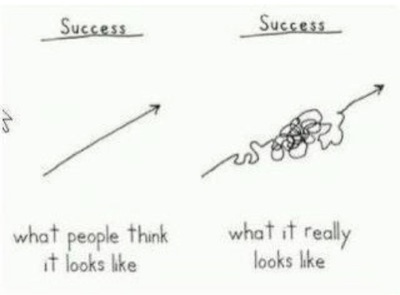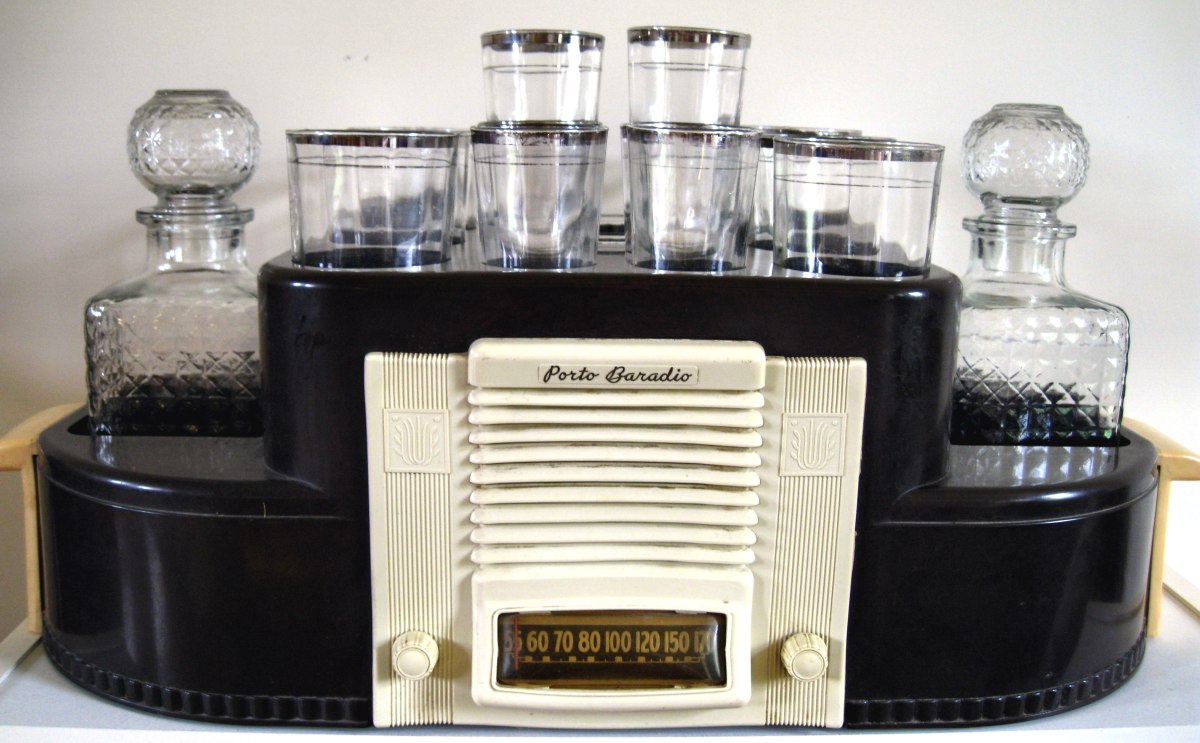This is a scratchpad post to collect “stuff” for the upcoming 50th anniversary of WORT. Cautionary notes: the newsletters and other documents behind the “click here” links are hosted here on my site. Also — this is still under heavy editing/development (I’ll take this warning down when I feel like it’s close to done).
Category Archives: Radio
Grinnell Reunion 2012 — a life of happy accidents
I gave a talk at my Grinnell College reunion last weekend and decided to build this post to share a bunch of links to things that I talked about. This ain’t a’gonna make any sense to the rest of you. But the stuff is interesting. 🙂
This is a story of rivers of geeks. I described the rivers that I swam in during my career, but these are by no means all of the species of geeks that ultimately built the Internet. I was lucky to be a part of a gang of 10’s maybe 100’s of thousands of geeks that came together in the giant happy accident that resulted in this cool thing that we all use today. But don’t be confused — it was a complete accident, at least for me and probably for all of us. Here’s a diagram…
Consensus decision making — WORT-FM, 1975
This is a piece by Jeff Lange in Volume One, Number Three of “Spread the WORT” — the newsletter of WORT-FM (Madison, WI) just as it was going on the air in 1975. I’ve always loved this description of the consensus decision-making process we used to run the station. All due apologies to Pogo…
The big deal? The sentence that really catches it for me is “we ad WORT don wanna tred up on the wee miroridy vuponts, so we jus wade undill eberyone am finely agreed.” Still works for me today, some 35 years later. Thanks Jeff!

Here’s my translation, since many of you aren’t native-English speakers and might find this pretty tough to read in Jeff’s native Pogo-style language. Apologies to Jeff for any mistranslations.
Yes, it’s a curious fact, that nobody is ever able to quite explain, how decisions get made at this particular radio station. But they do. This is a grievous hard and ticklesum thing for newcomers to digest. Take, for example, the familiar caller who, in a fever pitch of excitement, has phoned up the station with his or her (or “it’s” for that matter) idea for a program. Rnnng. He (let’s just say it’s a “he”) says “My dog can bark heavy metal rock n’roll — can he have 5 hours on Tuesday nights?” Well, the person at the station (say it is a person) says “Isn’t that the same thing as what’s on WBRK every night?” The caller replies “Yes, but my dog barks badder!” Then that, says the person, is a question for the Program Committee.
The best thing then is if the caller hangs up, thinking all is well for the Program Committee will do its duty. But if the caller says “Oh, what’s the Program Committee?” then the person has to explain: The Program Committee are all the people that come to the Program Committee Meeting. You can come. So can your mother. It’s Friday at 8pm. No, they never vote on anything. Voting is against the rules. So is parliamentary procedure. They just talk about things until everyone is agreed, and that is consensus — the highest form of unanimity.
Then the caller says “oh.”
Then the person at the radio station should continue: “Yes, it’s a curious fact, but it seems to work. So far, at least. We at WORT don’t want to tread on the wee minority viewpoints, so we just wait until everyone is finally agreed. Nope, it’s never failed yet… which just goes to prove: you can make some of the decisions all of the time, and all of the decisions some of the time…”
Then the caller says, “can you put me through to the general manager?”
“No, there isn’t a general manager. Would you like to talk to Sarah-Gene?”
“She the owner?”
“Nope. She’s just another volunteer.”
Porto Baradio
Ah, the joys of moving. Old things rediscovered after years of sitting lonely and forlorn in the Center Hall Closet. One item that’s made it back out into the glory of the light of day is the wedding-gift Porto Baradio that we got from our bestest Madison friends. It was a centerpiece in the place-before-last, got demoted to the closet when we bought Mom and Dad’s mid-century modern house and returns to its proper place now that I’ve got room to see all the radios again.
Is this a cool thing or what? A bar… A radio… All portable… Take that, you iPod weenies.
Radio people are digging their own graves
I loved this New York Times piece called “Fade-out, how the new rock is passe on radio.”
Here's the punchline quote at the end;
Quote:
Some analysts fear that, when radio stations switch from alternative rock to programming aimed at older listeners, they may be making a sacrifice. “Radio has ceded the younger demographic to other media,” said Fred Jacobs, president of Jacobs Media, a radio consulting company in Southfield, Mich., specializing in rock. “I just don't know how we're going to get back people who didn't get into the radio habit in their teens,” he said, adding, “It really becomes problematic down the road.”
Another tidbit from the article. Turns out the big programmers (Cox, Clear Channel) dropped women from their ratings target in 2003! And here's another gem.
Quote:
“The format in the last couple of years has gone through an identity crisis,” said Kevin Weatherly, program director of KROQ, a closely watched alternative powerhouse in Los Angeles. “You have stations that are too cool, that move too quickly and are only playing the coolest music, which doesn't at the end of the day attract enough of the audience. Or you have the other extreme, dumb rock, red-state rock that the cool kids just flat out aren't into.”
Dumb rock. Red-state rock. I love that…
Here's a tip to the broadcasters. Figure out what podcasts the “cool kids” are listening to. Do something like that on your radio station. You'll be fine.
Update…
Hm, later the same day, Clear Channel (biggest oinker multi-radio-station owner in the land) posted declines in radio revenue. Here's a relevant quote;
Quote:
Radio broadcasting revenue fell 7 percent to $773.6 million, while live entertainment dropped 17 percent to $424.5 million
And here's a link to the story.
Sex and Podcasting — my new podcasting gizmo
I’m late into the game — podcasting’s 5 months old, but I’m there now.
This blog has been neglected for the last couple weeks while I’ve been getting things pulled together, but I’m there now and this is an entry to record what I’ve learned. It’s going to be another really long one, so I’ll put topic headers and keywords (for Google) “above the fold” and leave the gory details for the “read more” section…
Sex and Podcasting — what it’s about, why I’m doing it, why I transmogrified Lorenzo’s “Sex and Broadcasting” book title into my site’s name, plus some of the interesting current developments in the podcast world like Adam Curry’s Podshow.com.
Licensing — I’m going to play RIAA licensed music. At least I think so… This section is where I’ll explore the differences between ASCAP/BMI performance rights licenses, Harry Fox Agency mechanical rights licenses and SoundExchange federal copyright licenses and how I’ve decided to proceed — the short version is; I’ve got a BMI license for the performance rights, and will work with Harry Fox on mechanical rights when they decide what to do.
Equipment — hardware/software plus construction. I got a couple cool new toys — some nice mics plus a really neat Marantz PMD660 digital recorder (which i wound up getting in preference to the Edirol R1).
To learn more… Continue reading
Podcasting
Julio’s been writing about podcasting for (seemingly) ever — and i didn’t read any of the posts until today when he pointed folks at this great 4 Minutes About Podcasting movie.
NOW I get it!
Amazing — all of the “tell your own story” ethic of community radio, combined with all the cool “build your own feed” capability of RSS feeds, which results in “radio” that’s going to show up in Google.. If you’re a community-radio type person who hasn’t messed around with podcasting, go watch that movie — and then let your imagination run wild. I’m sitting here thunderstruck, realizing what the possibilities are…
What an amazing community technology. For example; you’re an organizer of (fill in the blank), laboring away in your local community. Wouldn’t it be cool to be able to hear an occasional “show” about your cause, direct from the mouth of your inspirational mentor? If you’re an inspirational-mentor type person, wouldn’t it be great to periodically share your “show” with others?
Or, if you’re more like the typical community-radio programmer, wouldn’t it be great to reach the .0003% of the population of the planet who shares your passion about (fill in the blank)? Conversely, wouldn’t it be great to listen to shows produced by people who exactly share your tastes and views?
Mama, don’t let your babies grow up to be broadcasters. Their days of being in any way relevant are numbered.
This one totally nifty technology. Thanks Julio for pointing me at the link that finally turned the light bulb on. I’m going to add useful links “below the fold” as I explore — to see that stuff, hit the “read more” button.
Bandwidth — A puzzler
The community radio movement was all about access to limited bandwidth (in our case, noncommercial FM channels). Podcasting is going to present an interesting bandwidth problem for the person with a really popular podcast — it’s going to slurp up a lot of bandwidth to deliver a 50 mByte file to thousands (millions?) of fans that are hungry for your stuff. Looks to me like we’ll need to marry BitTorrent with podcasting pretty soon now.
I’m really interested in the “how do you do it?” part of podcasting right now, so that’s what this first collection of links reflects.
Engadget provided a great starting point on this page about podcasting.
Creating podcasts is pretty straightforward — make a radio show, but pipe it off to an MP3 file when you’re done. I was Googling for “make a podcast” and got zillions of articles about how to make digital radio shows — lots of talk about mixers, and line-inputs-to-the-computer, and like that.
What I’m interested in right now is the RSS feed part — and the very last part of that Engaget article is what tipped me over to understanding. It all revolves around the notion of an “enclosure” in an RSS feed — something that most blog-creating software doesn’t grok yet, but I bet all off them will soon.
I think for now I’ll try just editing up my own RSS feed by hand rather than trying to force-feed Xoops (the software I’m using to create this blog). I’m going to use the XML file in the Engadget article as a template, build me a little “hello world” podcast and see how I do. But not right away. First I gotta finish helping Marcie lay down flooring in the upstairs room at the farm.
International symposium on advanced radio technologies
Here's a great site to go look for the latest and greatest thinking about radio networking. The link is to the page where the speaker's notes are posted.
A terrific resource for community-technology geeks, like me.


